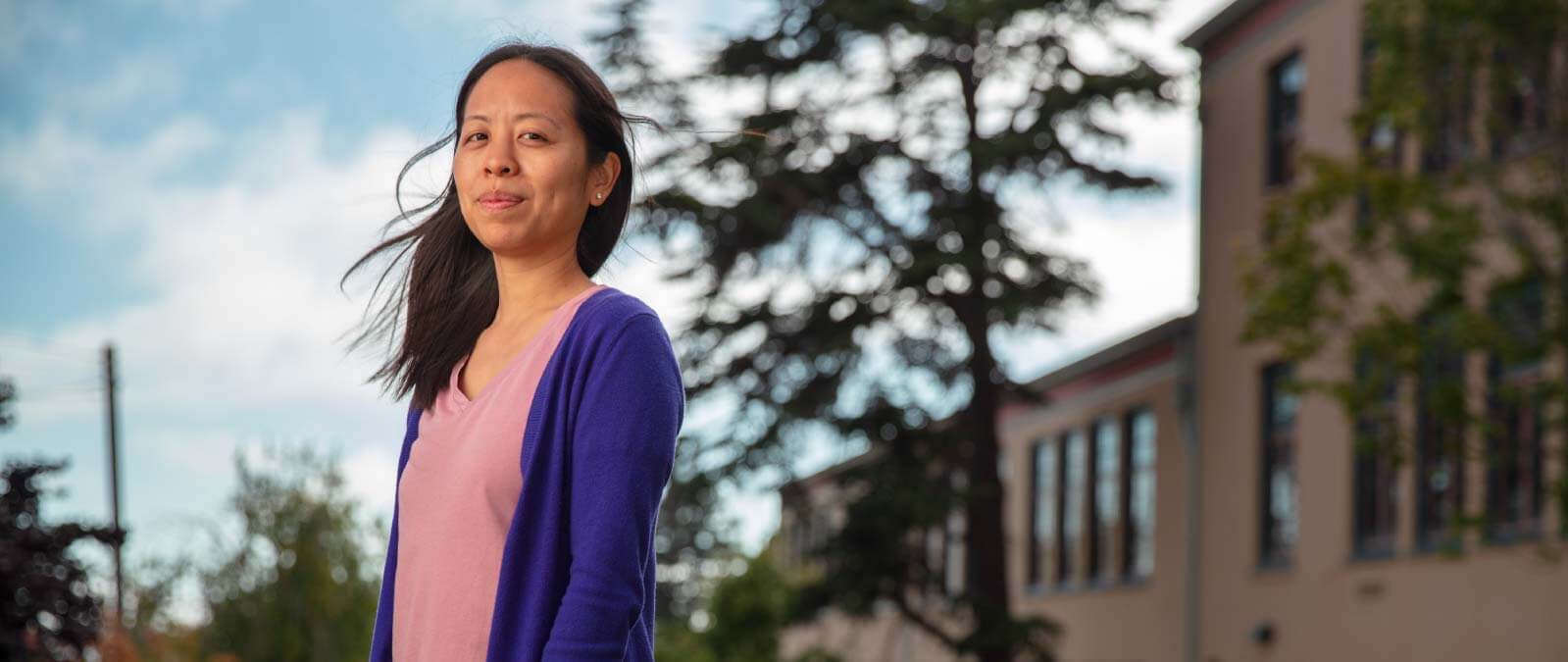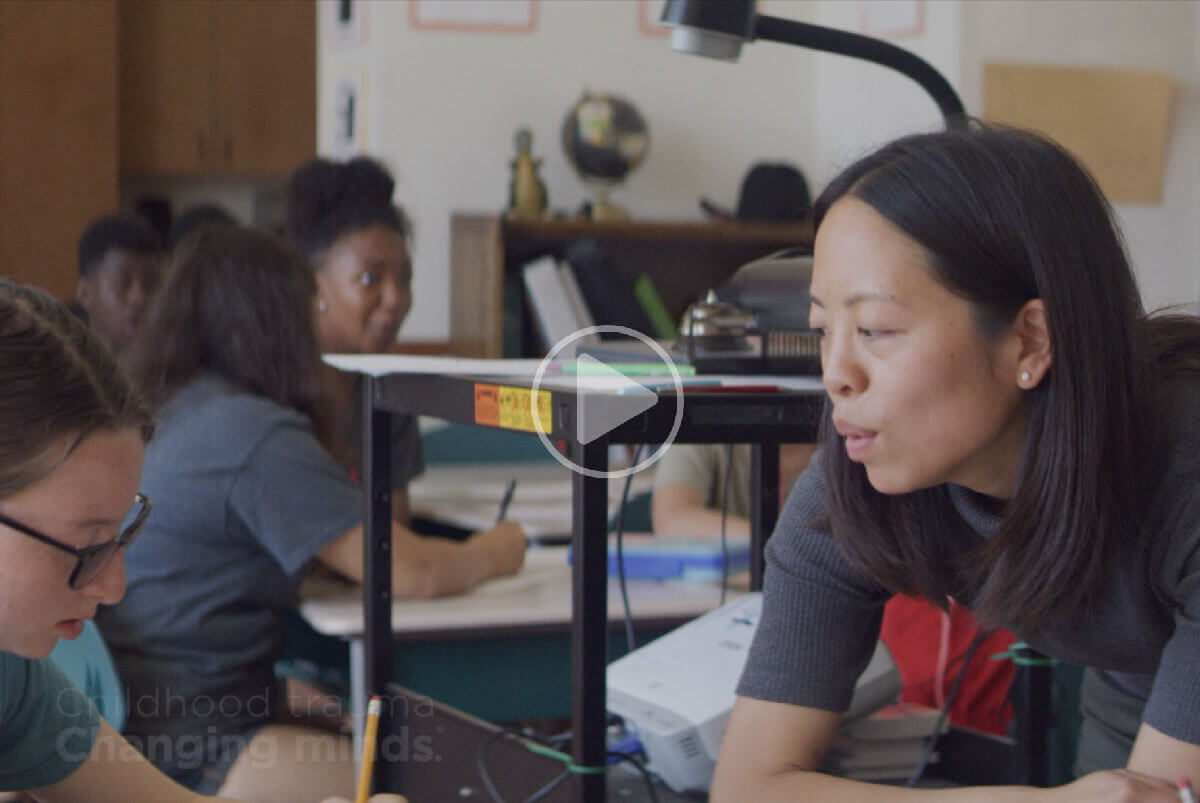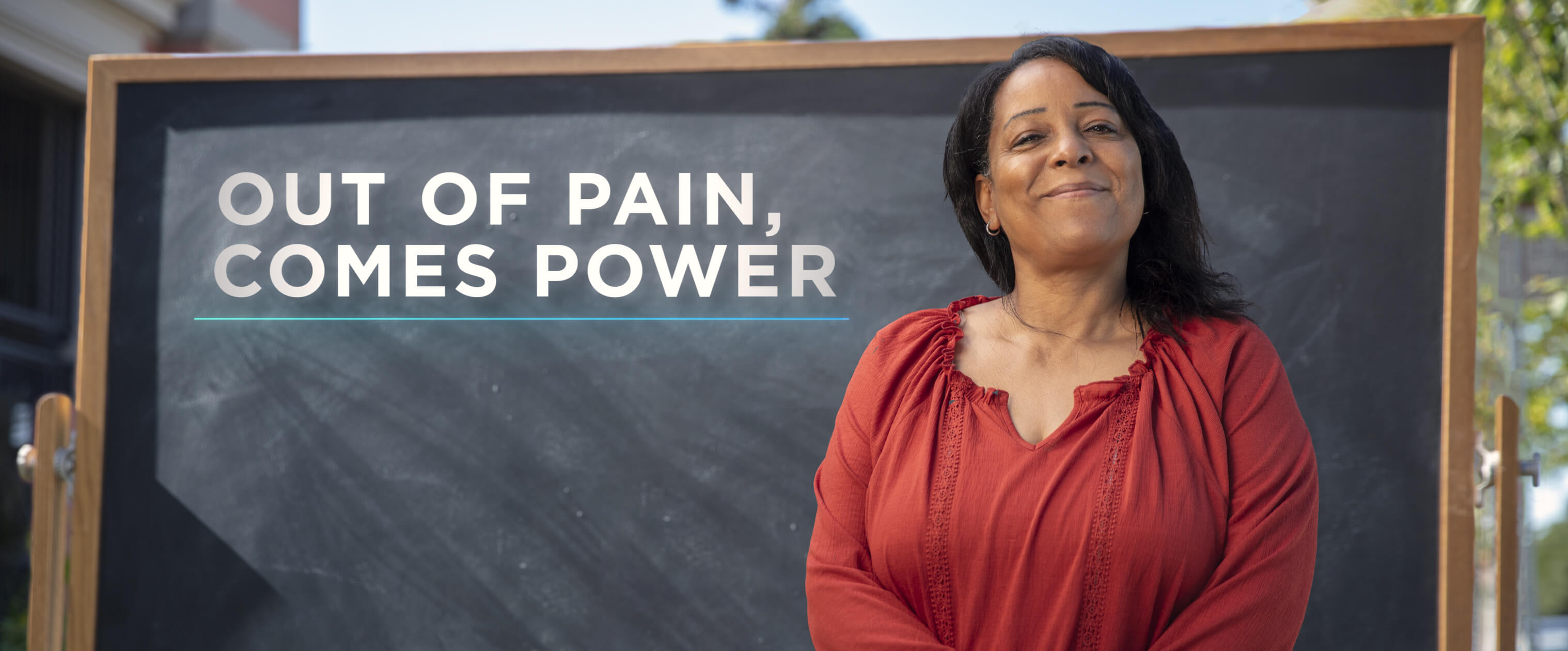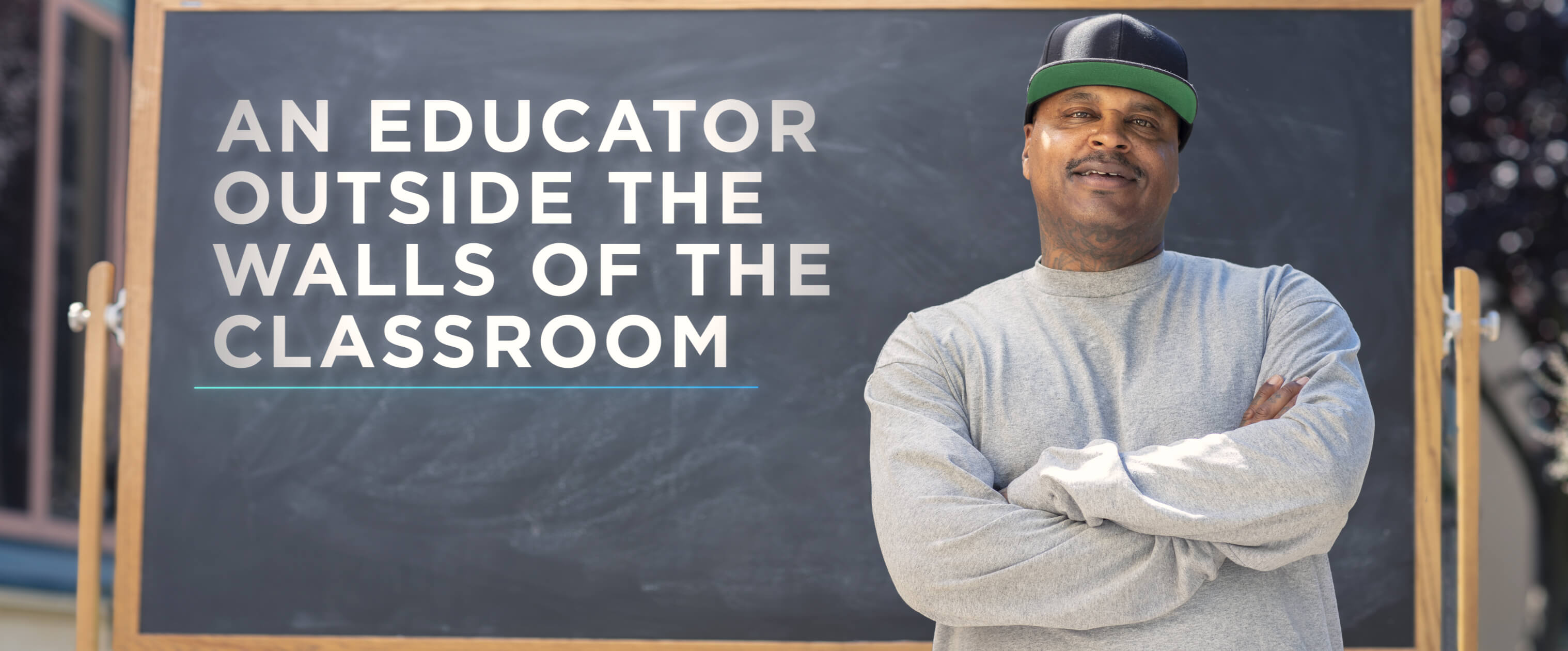Wendy Lai Always Felt Called to Teaching, It Just Took Her a Bit Longer to Hear It
It’s post lunch hour in Wendy Lai’s math class. The heat from direct sunlight permeates the classroom, threatening to sap the energy out of the middle schoolers who can sense the end of the school day. Yet every child is looking up to the front of the class, eyes wide open, fully engaged. Lai moves through the room, in full control with a sense of warmth that emanates from a permanent smile and open gaze. Lai has learned that to engage students, she must connect the subject beyond passing the next test.
“We are connecting math to our world, and learning how to collaborate with others and learn from others,” she says. “I try hard to make my classroom one where students can experience that for themselves.”
Lai is the type of teacher every parent wishes for their child. She knows that safe, stable, nurturing engagements with caring and consistent educators are crucial in helping young people succeed both in and out of school.
“It has been and continues to be my life’s calling to be in this work,” she says.
So how did this calling almost go unanswered?
On a different sun-drenched day, three decades earlier, a petite girl with glasses rides her bike to school in Florida. Bullies lie in wait just beyond the schoolyard, armed with verbal taunts, waiting to pick on one of the few Asian-Americans in their school.
“I was shy. I felt embarrassed about my parents’ accents and remember being teased by a few classmates for the ways my eyes looked and the food my mom would pack me for lunch,” Lai recounts.
Lai’s parents, who immigrated to the U.S. from Taiwan in the 1980s in search of a better life, always emphasized the importance of education and its power to level the playing field. Her dad browsed their town’s thrift shops and garage sales in search of used books, which filled every corner of their home. His love of books inspired the same in Lai.
“My parents often recount memories of me at the dinner table, one hand holding chopsticks, the other holding a book,” she recalls.
 I want kids to be able to find their gifts, and use their gifts to make a positive difference in the world. That to me is the most joyful work that I could possibly do.
I want kids to be able to find their gifts, and use their gifts to make a positive difference in the world. That to me is the most joyful work that I could possibly do. 
Lai reminisces about teachers from her early years who helped the shy and quiet girl gain the confidence to do whatever she wanted. She credits these educators with doing many things right in the classroom, such as reading aloud and guiding class explorations. But it was the feelings they instilled that had the most profound effect.
“My teachers made me feel comfortable and joyful at school… who genuinely cared about me,” she says. “With this comfort, I could truly learn.”
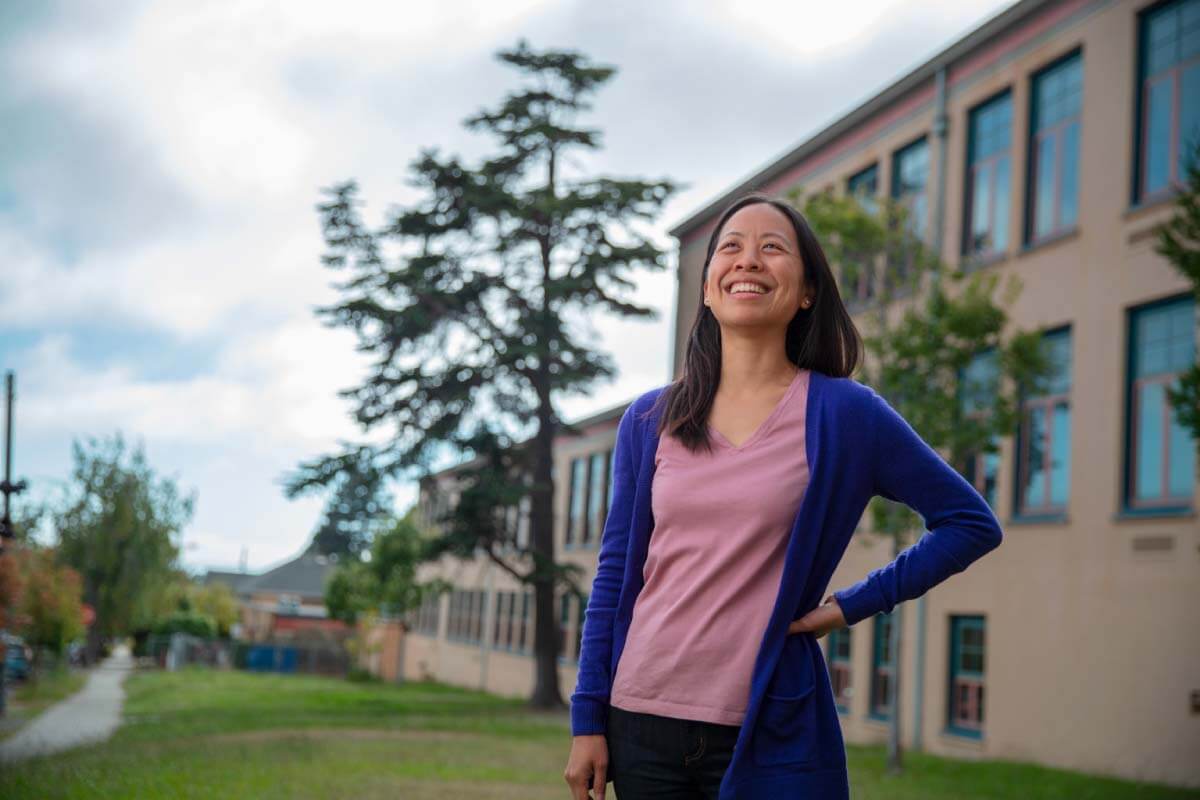
Wendy Lai standing in front of MLK middle school.
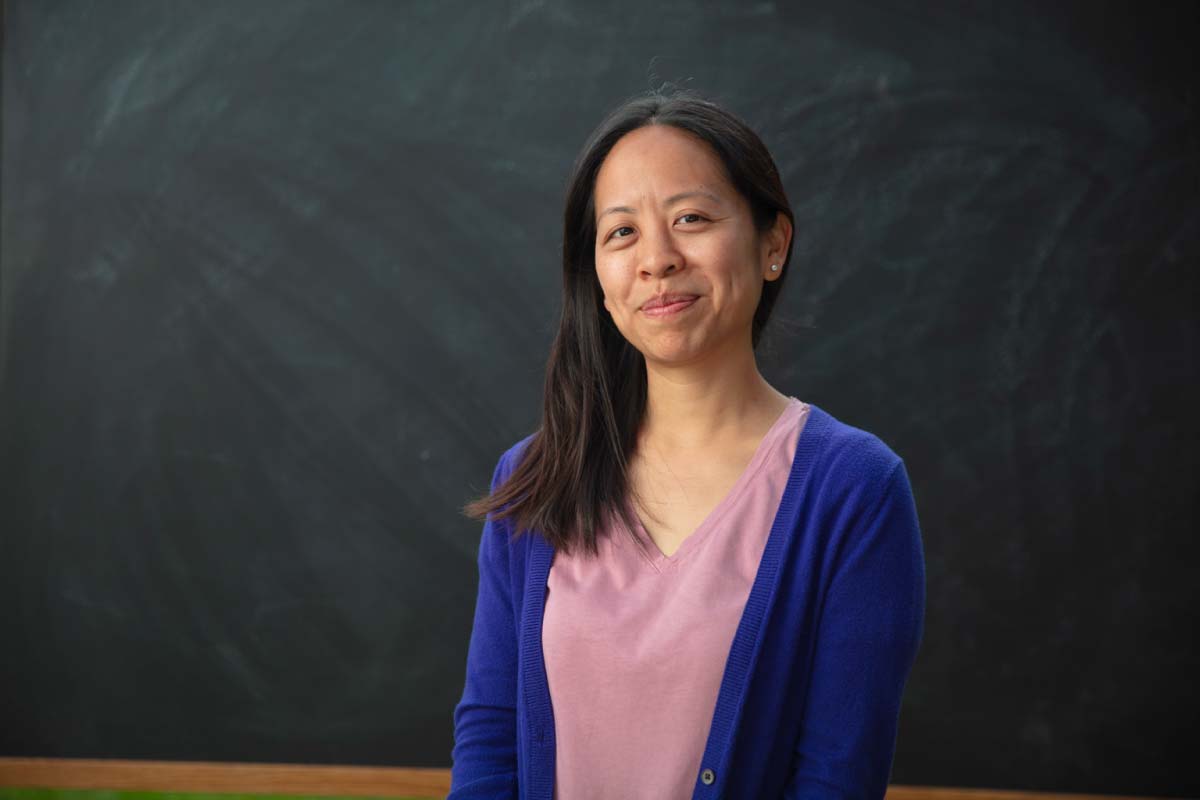
Wendy Lai at MLK middle school.
Later, in college at Harvard, Lai had to adjust to the new environment and the harsh Boston winter. She felt intimidated by the larger classes, the high-achieving student body, the acclaimed professors. When it came time to declare a major, she wasn’t quite sure what to focus on, so she opted to major in economics.
“It was by far the biggest concentration for undergraduates, and I just went with the flow,” she says.
A sense of family duty to get a high-paying job led to a career at an investment bank, analyzing numbers, staring at screens, watching markets move through jagged graphs and excel columns. “I felt my soul wandering a lot,” Lai reflects.
One day in New York City, as the 6 train pulled into Lexington station, a poster advertising a teaching program caught her eye, and she began to envision a different life.
“I reflected on the times that I felt most fulfilled, and they always came back to school experiences,” she recounts.
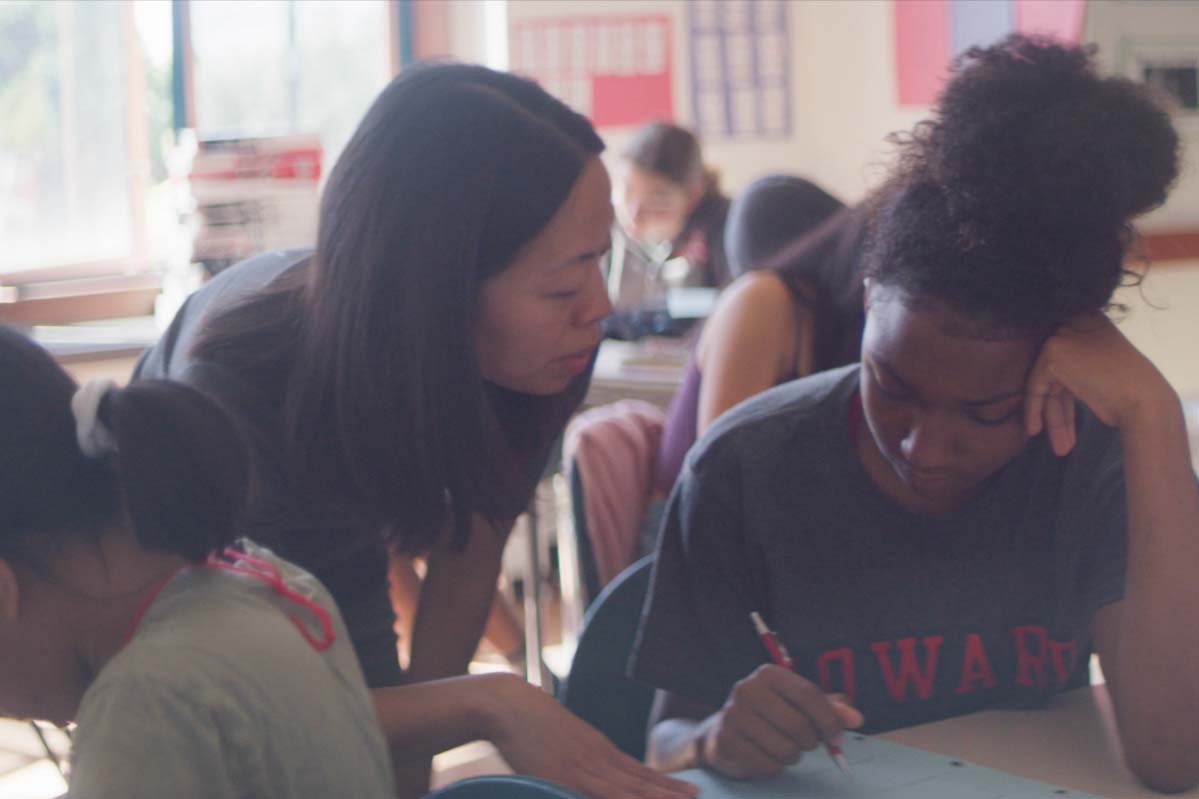
Wendy Lai helping a student with their math problem.
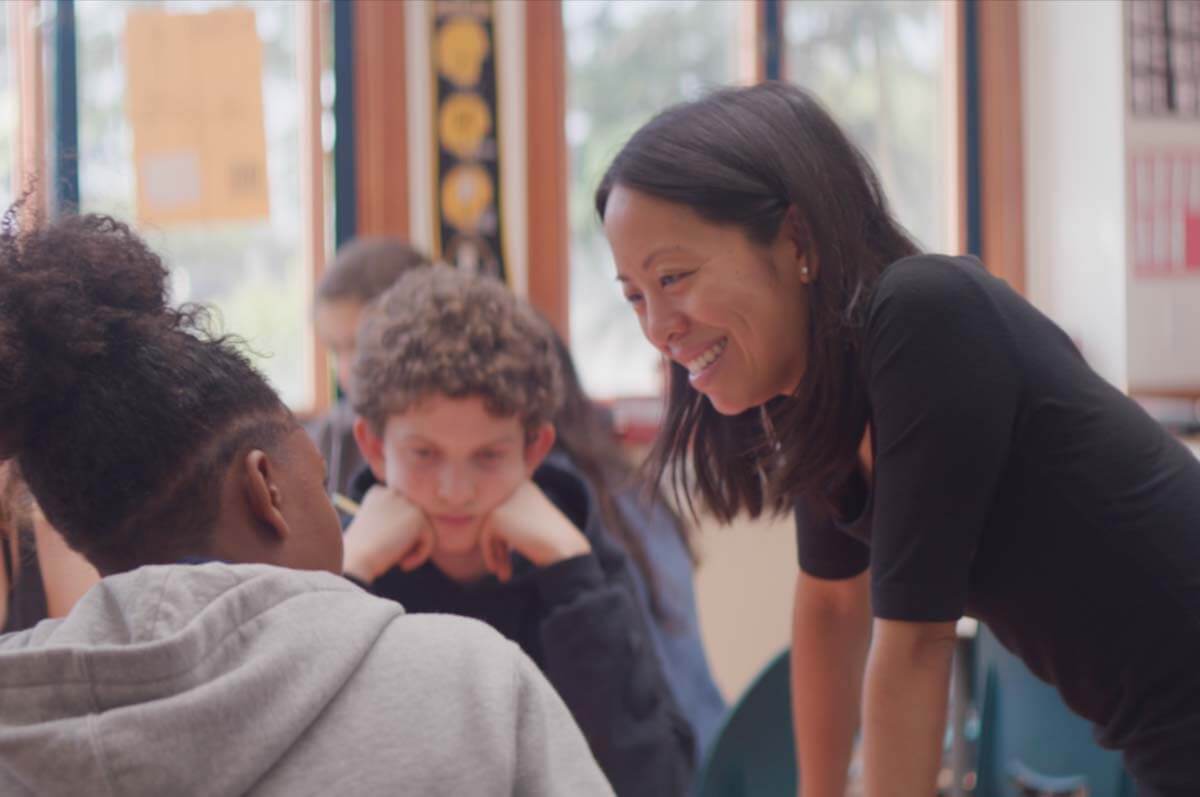
Wendy Lai talking with students.
10 years later, Lai has never questioned whether that decision she made on the train was the right one. Math, she believes, can help teach larger life lessons. She explains that many people experience a lot of fear and anxiety around approaching math problems, but collaboration with peers and teachers in the classroom to solve these problems can help instill the confidence and strength needed to overcome other important life challenges. Just like when she was a young child, that positive learning environment can have a lasting impact. In Wendy Lai’s classes, differences are celebrated, mistakes are met with understanding, and everyone is heard.
“I think it just changes everything, because kids are able to see, wow, my presence here matters,” she says.
